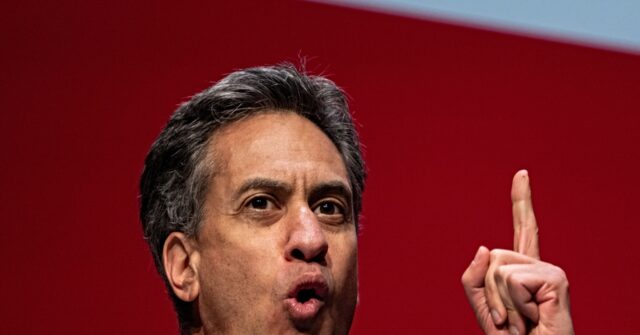
U.N. to Vote on First-Ever Global Tax Trade Punishing Shipping Emissions
The International Maritime Organization (IMO) is meeting in London to vote on new rules to cut “greenhouse gases” by imposing a first-ever global tax on shipping emissions. The meeting of the U.N. agency ends Friday and is expected to finalize a “Net-Zero Framework (NZF)” where commercial ships would pay for emissions over a set limit as defined by the IMO, while vessels that meet tougher standards could trade or bank so-called “surplus units.” The Trump administration unequivocally rejects the proposal and has threatened to retaliate if nations support it, setting the stage for a fight over the climate deal. As Breitbart News reported, the IMO first drew up the draft rules and regulatory framework in April, targeting ocean-going ships over 5,000 gross tonnes, which are responsible for about 85 percent of international shipping’s total CO2 emissions. The organization said they want the shipping industry to reach carbon neutrality “by or around 2050,” with interim targets of 20 percent reductions by 2030 and 70 percent by 2040. If adopted, it will mark the first-ever international climate fee for a single industry – a move with major implications for international trade and competitiveness. The United States was notably absent from the April meeting, which the Trump administration previously dismissed as “blatantly unfair.” “President Trump has made it clear that the U.S. will not accept any international environmental agreement that unduly or unfairly burdens the U.S. or the interest of the American people,” the administration said in a letter to the IMO. “Accordingly, we must be clear the U.S. rejects any and all efforts to impose economic measures against its ships based on GHG emissions or fuel choice,” the letter said. “Should such a blatantly unfair measure go forward, our government will consider reciprocal measures so as to offset any fees charged to U.S. ships and compensate the American people for any other economic harm from any adopted GHG emissions measures,” the letter threatened. Oil-producing countries also object to the global carbon tax agreement, including Saudi Arabia, the United Arab Emirates, Russia, and Venezuela. Much of global trade is accomplished through maritime shipping and a heavy, punitive tax on emissions would increase the price of virtually everything. Forcing cargo haulers to use the current generation of “green energy” technology would end worldwide commerce as we know it, critics make clear, and embracing “taxation without representation” is anti-democratic and an unfair imposition on free trade. If adopted at Friday’s vote, the regulations will enter into force in 2027. Exactly how the U.N. global trade tax will be imposed and how it will be collected is yet to be made public. Follow Simon Kent on Twitter: Follow @SunSimonKent or e-mail to: skent@breitbart.com
